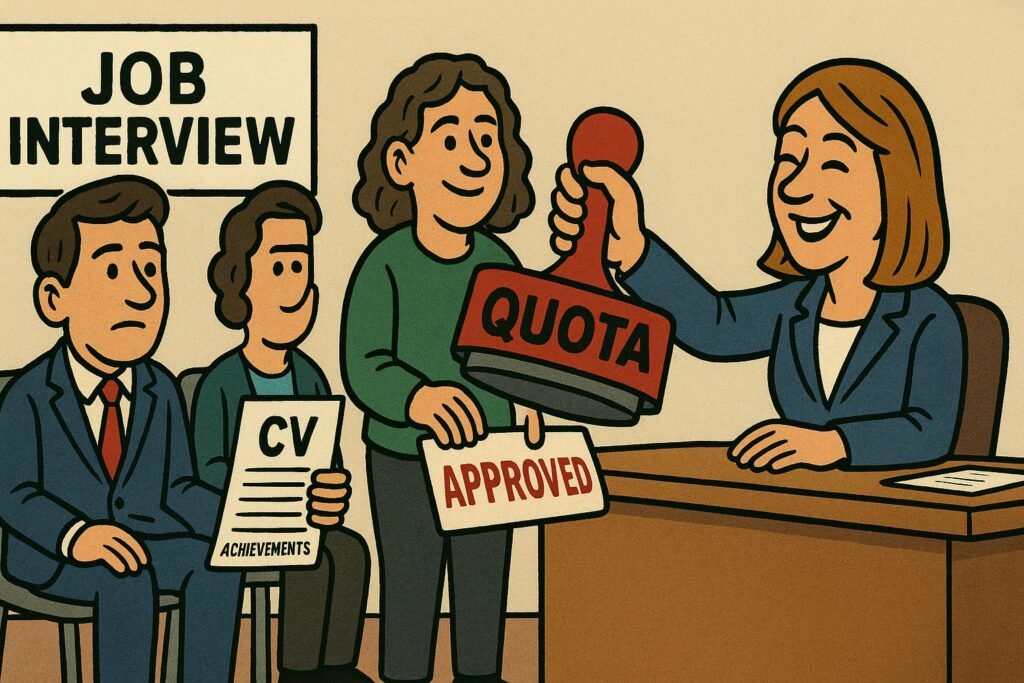Affirmative Action – When Merit Takes a Back Seat
Affirmative action was sold as fairness: giving disadvantaged groups a boost to level the playing field. In practice, it means treating race, gender, or identity as the deciding factor over skill, effort, or merit.
It doesn’t fix inequality. It just shifts resentment.
Table of contents
Buzzword Breakdown
- Affirmative Action → Hiring or admitting by category, not competence.
- Representation → Headcounts dressed up as justice.
- Quotas → Bureaucratic targets replacing individual achievement.
- Corrective Justice → Academic spin for institutionalised discrimination.
What Affirmative Action Really Means
Affirmative action programs use race, gender, or other identity markers to tip the scales in hiring, promotions, or university admissions.
The promise: make up for historic disadvantage.
The reality: replace meritocracy with social engineering.
How It Works in Practice
- Universities → Admissions decisions skewed to meet demographic targets.
- Workplaces → Hiring or promotions influenced by identity metrics.
- Government → Public contracts reserved for preferred categories.
The message: your group matters more than your individual ability.
The Business of Affirmative Action
Affirmative action isn’t just policy — it’s a pipeline:
- Universities brag about “diverse intakes” to polish their brand.
- Corporations publish glossy reports to showcase their “inclusive leadership.”
- Consultants help companies tick legal boxes without lawsuits.
Fairness becomes a marketing product.
The Irony
Affirmative action claims to fight discrimination, but it institutionalises new discrimination — against anyone outside the favoured categories.
It says outcomes matter more than opportunities. Which means the hard worker from the “wrong” group loses out.
That isn’t justice. It’s bureaucracy in moral drag.
Why It Matters
- Undermines meritocracy — ability and effort become secondary.
- Breeds resentment — winners feel tokenised, losers feel cheated.
- Distracts from class — identity quotas overshadow universal struggles like wages and opportunity.
Conclusion
Affirmative action promised equality but delivered division. Instead of levelling the field, it tilted it the other way.
True fairness isn’t about group quotas. It’s about judging people as individuals — something AA quietly abandoned.
FAQ
Isn’t affirmative action just fairness?
No — it replaces equal opportunity with engineered outcomes.
Who benefits most from affirmative action?
Universities, corporations, and consultants who profit from quotas. See: [Universities – The Factory of Woke Graduates].
Doesn’t it help disadvantaged groups?
It often helps elites within those groups, not the genuinely disadvantaged.
How does it affect meritocracy?
It undermines it, by elevating identity markers above skill and effort.
What’s the bigger picture?
It entrenches identity politics over universal rights. See: Politics & Identity Activism – How Laws Bend Under Pressure.



